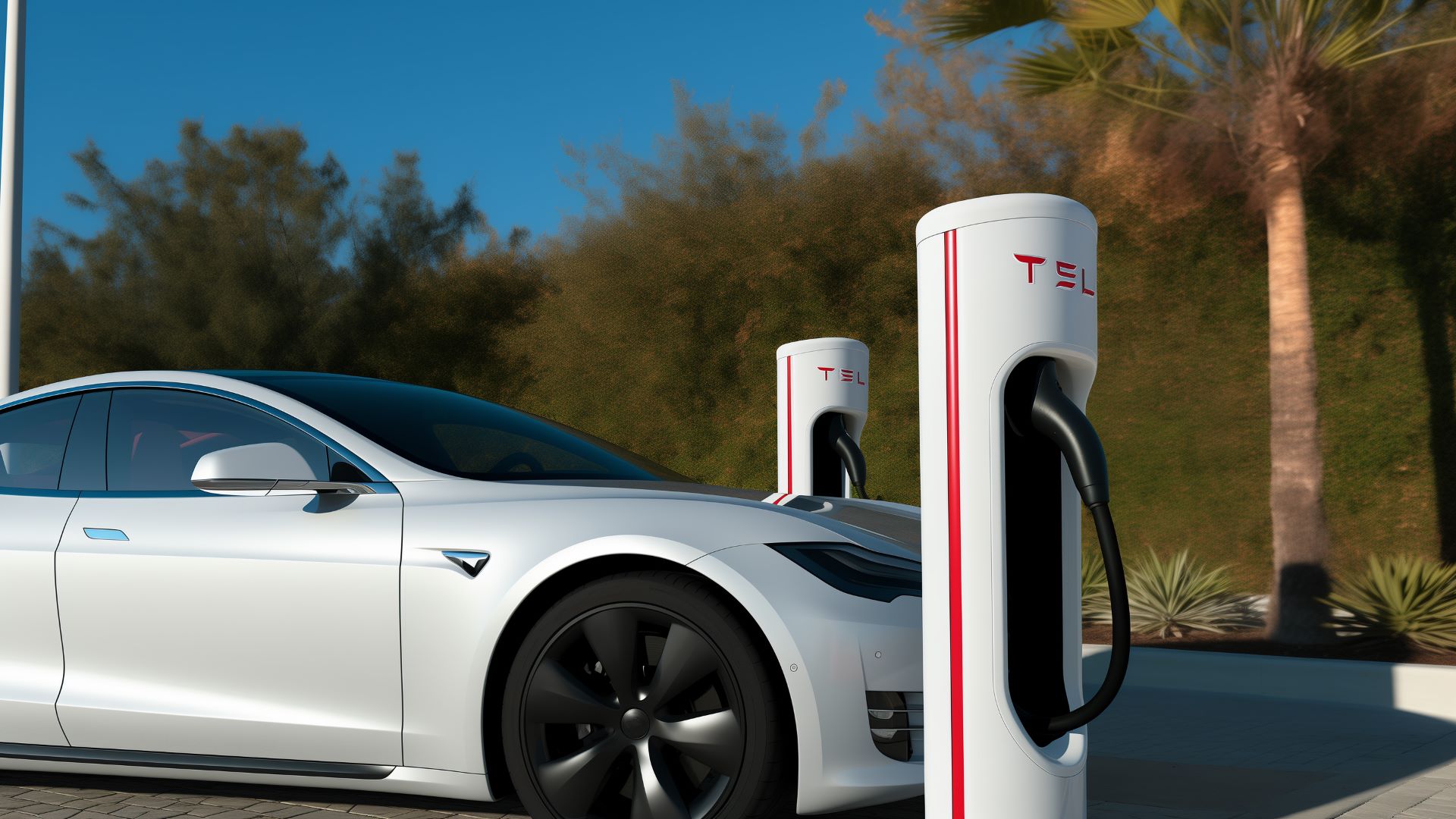
How Can an EV Charging Station Franchise Make Money?
April 28, 2023 - Emily Newton
Revolutionized is reader-supported. When you buy through links on our site, we may earn an affiliate commission. Learn more here.
As you already know, electric cars and vehicles of all types are currently taking the world by storm. Many people are cheering for this development in more environmentally safe driving, though there are a few hurdles to clear before EVs are 100% toll free. However, their current state offers emissions-free operation and reduced noise pollution. Interest in starting an EV charging station franchise is therefore growing, garnering much excitement in getting in on the ground floor.
There are already charging stations outside many stores where shoppers can plug in their cars while they browse. Do these cost anything to operate? How does one run an EV charging station franchise and still make money? There is much to know about this budding market while it is still new.
Are EV Charging Stations Free?
While not every charger lets drivers power their cars without a cost, yes, some EV charging stations are free. Some come entirely without a cost, while others allow people to charge their vehicles for 30 minutes to four hours before they have to pay. Certain chargers may request a parking fee instead of relying on a time, kWh consumed — like a gas station — or regulated charging fee.
It might seem like there are free EV chargers everywhere, but that number is dwindling — if it was ever high at all. As of November 2022, just under 20% of are free across the United States. California has the highest amount of chargers but the second-lowest number of free ones, with only 11.3% of their stations offering no cost to drivers. Massachusetts is the lowest — only 150 of its over 2,300 chargers are free.
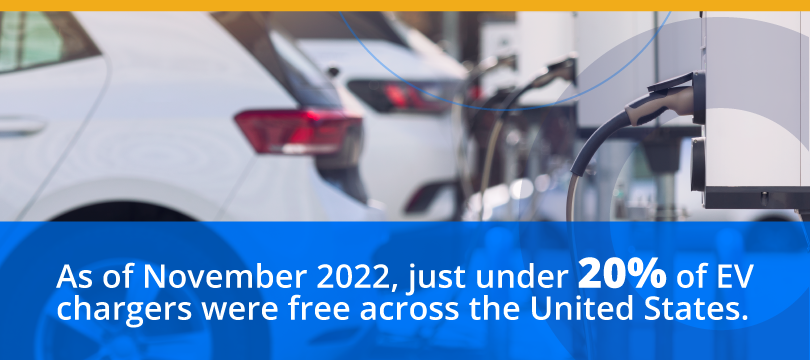
How Do You Pay for EV Charging Stations?
In some cases, the operator simply absorbs the cost of electricity the chargers use — although this can get pricey depending on how frequently drivers use the stations. The surest way to ensure you recoup the price of electricity the chargers generate is to charge customers directly for how much they use.
Some drivers will also be willing to pay more to power up their cars at a charging station, similar to how a gas station operates. One study assuming consumers had at-home chargers that cost $0.75 to use found many would be okay with using a public charger that cost more than it would in their house. Forty percent of those who currently own an EV would pay $2–$3 per hour and 17% said price did not matter to them.
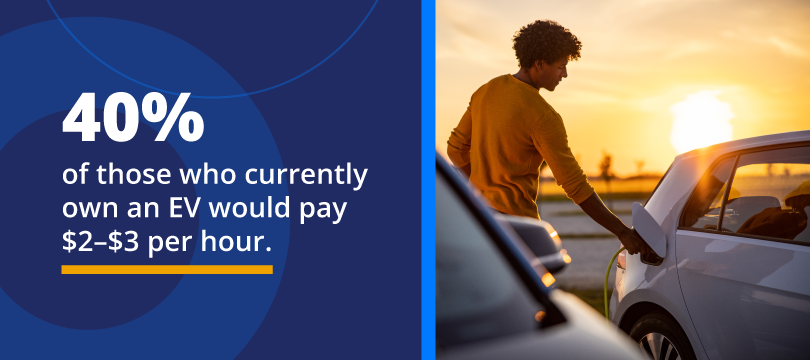
Increasing the ROI of an EV Charging Station Franchise
Although it does not seem like much, incurring a slight upcharge could be enough to cover the cost of electricity your consumers use. In addition, creating a station that offers high-end amenities can encourage people to spend more while they wait for their vehicles to power up. According to research from EVBox, most current and potential EV drivers are employed, while over half of those driving one now have a high level of education. Those numbers indicate people with EVs have extra money to spend.
Most people want to charge their cars at grocery stores, restaurants and shopping malls — or places where they will spend money. Establishing a convenience store with various food and last-minute needs like vehicle phone chargers or rain jackets can encourage people to spend money while they wait, garnering more profits for your station. Partnering with a company to offer charging stations to its employees could also be a successful business plan.
EV charging franchisers can also recoup much of the costs of installing their chargers as well. There are multiple tax rebates and state-based incentives that will pay back a certain amount of what you spend on installing chargers. Additionally, buying chargers in bulk can help cut down the prices significantly.
The Underlying Issue With Free EV Charging
Encouraging the world to switch the kind of car they drive is no small feat. Thus, manufacturers and retailers are promoting high incentives to make the change. Some will offer customers a handful of free charges after purchasing their new vehicles, while others have no-cost charging for multiple years. For example, the Ford Mustang Mach-E gives drivers 250 kWh of free power, while the Volkswagen ID.4 has up to three years of free charging.
However, all the cost-free charging increases the demand for charging stations, which the current landscape still needs to meet. These programs often promote charging at public stations instead of at home, clogging the chargers and making it so many drivers find powering their vehicles challenging.
Additionally, many will charge their cars to full so they do not have to return to the public charger for a while. This presents twofold problems. Some EVs take longer to charge from 80% to 100%, so the driver takes up the station for nearly double the time they truly need to. The other issue is powering to full every time is not good for the battery and will eventually lead to decreased efficiency.
While offering free charging to consumers may sound like an excellent way to increase traffic, it actually creates a host of other challenges. Encouraging more people to power their vehicles at home or on site will allow for better flow in EV charging station franchises. Doing so might seem counterintuitive, but people still need to recharge their vehicles while driving or on a road trip, leading to a profitable option for franchise owners.
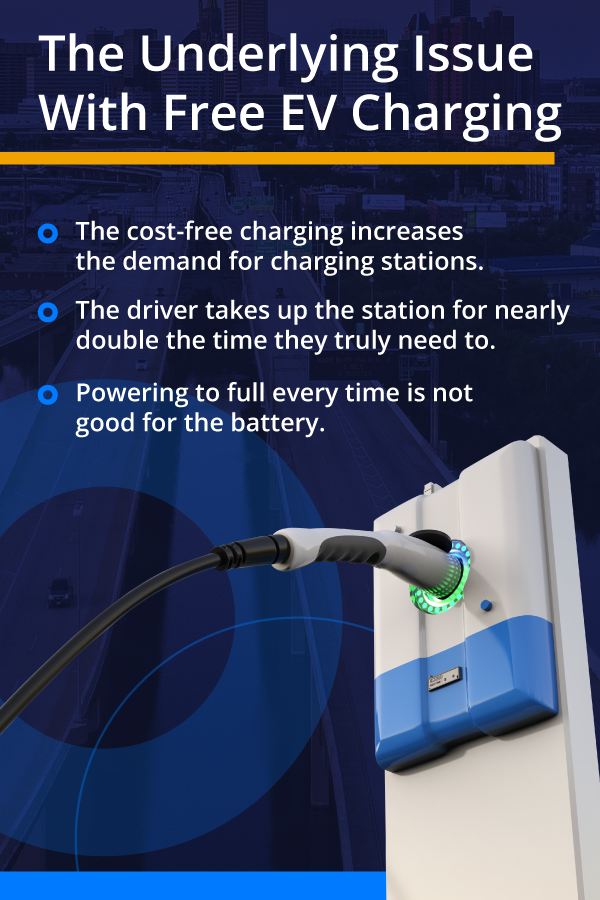
Is There a Future for EV Charging Stations?
Though there is certainly a reason to promote charging at home, there is still a significant market for public charging stations. People will still need to power up their vehicles while on the road, so there will still be a need to provide that option to those who need it.
The same EVBox research shows 25% of EV drivers worry about being unable to charge their car while not at home. Additionally, one of the major barriers to EV adoption is the anxiety over where to power up the vehicle.
Forty-eight percent of potential EV purchasers do not even know where to buy a house charger. Additionally, some drivers cannot afford to install an at-home charger after buying their new vehicle, so they must rely on public ones. Offering an option for all these needs will help increase adoption and promote business, helping recoup the costs of investing in an EV charging station franchise.
Keeping Up With an EV Charging Station Franchise
Electric vehicles are still very new in the automotive landscape, meaning there is plenty of room for charging opportunities. There will always be a need for a place to fill up a car while on the road. Finding ways to reduce installation costs and keep an EV charging station franchise profitable will help cement a business while the industry is still fresh.
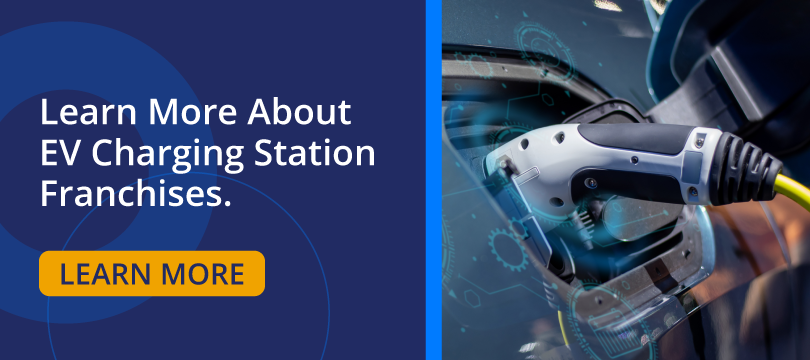
Revolutionized is reader-supported. When you buy through links on our site, we may earn an affiliate commission. Learn more here.
Author
Emily Newton
Emily Newton is a technology and industrial journalist and the Editor in Chief of Revolutionized. She manages the sites publishing schedule, SEO optimization and content strategy. Emily enjoys writing and researching articles about how technology is changing every industry. When she isn't working, Emily enjoys playing video games or curling up with a good book.


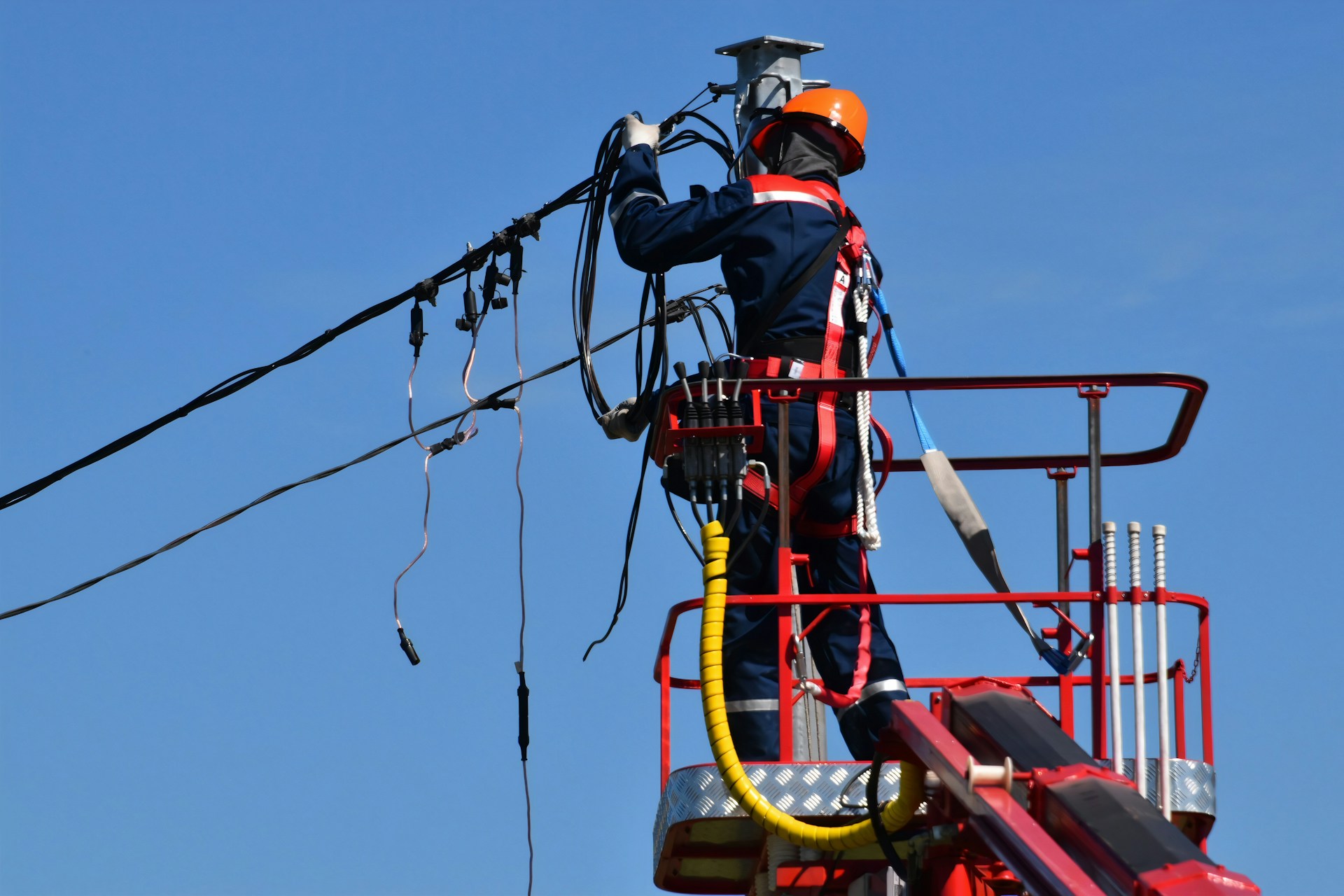





I am interested in starting a EV charging station franchise but I can’t seem to find a franchiser in the US. Anyone know of any business opportunities to be a EA charging station franchise owner?
Hi Greg – Did you ever hear back from anyone or get any info? I have the same question